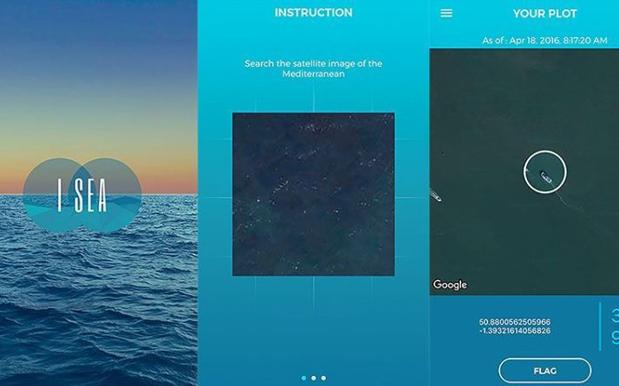
This right here is a very weird yarn.
Apple has pulled an award-winning app that utilised the power of crowdsourcing to spot troubled refugee boats in the Mediterranean (and supposedly help rescue them) because the clever clogs of the internet discovered the whole thing was actually a bloody stitch-up.
‘I Sea’, which ‘launched’ earlier this month, billed itself as *the* way for the average joe to do their part in Europe‘s humanitarian crisis.
The app clocked up coverage in the Huffington Post, Mashable, Wired, and plenty more – except, as Twitter user @SwiftOnSecurity discovered yesterday, the app is essentially bullshit.
Tried it, the app is completely non-functional. It’s a marketing stunt for the developer to get press articles. pic.twitter.com/SubRotl5A3
— SecuriTay (@SwiftOnSecurity) June 19, 2016
The app even has a fake weather reading to make users think they’re getting live images from a satellite. I’m done. pic.twitter.com/z3WCxc3Ik4
— SecuriTay (@SwiftOnSecurity) June 20, 2016
No copyright notice for framework or weather API, doesn’t explain satellite image source/refresh. Most journos wouldn’t realize it’s a sham.
— SecuriTay (@SwiftOnSecurity) June 20, 2016
The Daily Dot investigated further, and found that the app was in actual fact sending everyone the same image of the ocean, complete with fake weather readings from Libya to give users the false impression that they were seeing live weather updates.
“The app promises to show recent or active satellite data and present the user with a way to report the location of suspicious objects (as in, they could be refugees that need help, or just plastic objects in the ocean),” iOS app developer Rosyna Keller told The Daily Dot via Twitter.
“But it can’t do that since it’s not showing any actual images.”
And, as @SwiftOnSecurity pointed out, I Sea never explained how they hoped to get high-resolution, near real-time satellite imagery of the entire Mediterranean, nor how the average person was supposed to differentiate between a refugee boat in distress and literally every other vessel.
“I intuitively knew this app was fake within 20 seconds of using it,” she tweeted. “It screams unfinished interface mock-up, doesn’t act right.”
Gawker even uncovered the worrying fact that if you *do* miraculously spot a boat in need of rescue, despite being untrained to identify such a boat and being unable to do so on a static image anyway, then the app demanded your name, email and passport information to pass with coordinates along – with no privacy policy in sight.
“The app doesn’t validate these entries, so my ‘Fuck off’ counted as a valid passport,” wrote Gawker’s Peter Yeh. “It all feels like a movie set, detailed only on the part that faces the camera, but flat and empty otherwise.”
Following an outcry of negative attention (mostly from Twitter), the app’s designers Grey Group issued a bizarre non-apology which answered non of the key flaws in the app (access to satellite data, users’ inability to identify a boat in distress), and instead focused on the static satellite images.
“The I Sea App is currently in testing mode,” they wrote. “At this time it is loading and mapping satellite images to its GPS coordinates and users are able to report an anomaly in their plot of sea. The report function is sending out an alert whenever a user flags something in the plot of sea they are watching. During this testing period, the satellite images available are not in real-time.”
Apple has since withdrawn the app while its authenticity is being investigated, but the thing has already won a Bronze Lion at Cannes.
Watch out everybody, if your app disappoints me I will get it deleted from the Internet.
— SecuriTay (@SwiftOnSecurity) June 20, 2016
Photo: MOAS.



